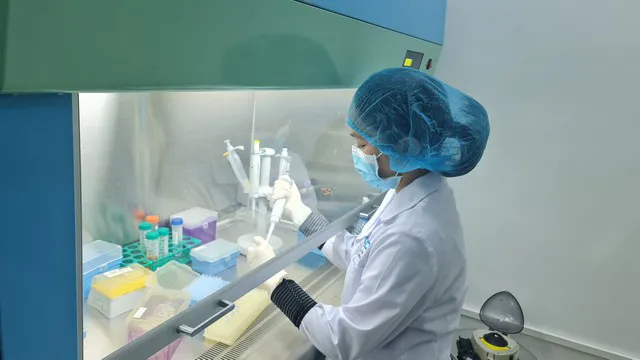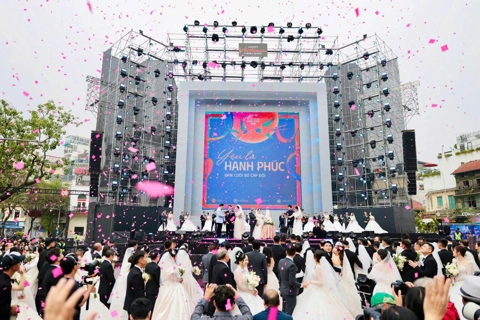Hanoi develops martyr gene bank
The gene bank will help determine the identities of unknown martyrs in cemeteries.
The Hanoi People's Committee has issued a plan to collect DNA samples from relatives of unidentified martyrs in the city for the period 2024-2025.
Accordingly, Hanoi will establish an identification database where information on martyrs' remains will be shared, making it possible to trace the personal information of unidentified martyrs.
An examiner from the DNA Identification Center for Revolutionary Martyrs analyzes a sample from the remains of a martyr. Photo: VGP |
The municipal government has assigned the Hanoi Department of Labor, War Invalids and Social Affairs to take the lead and coordinate with relevant units to compile DNA information on the remains of unidentified martyrs and their relatives.
Hanoi police and socio-political organizations are asked to cooperate in creating a repository of DNA of the fallen from the National Population Database and in the process of issuing ID cards.
In order to persuade the families of the unidentified martyrs to provide their DNA samples, the city police will emphasize the humanitarian motive. The elderly relatives of the martyrs and those who are in poor health, especially the mothers of the martyrs, will be given priority in taking DNA samples.
Hanoi police and the task force are responsible for collecting the questionnaires and safely transporting the DNA samples. The district government and police will be responsible for completing the information from the questionnaire of the relatives of the fallen combatants.
According to a report by the Hanoi People's Committee, taking samples from unidentified martyrs and their relatives for examination and storage in the gene bank is a step forward in verifying the identity of their remains. "Searching for and returning the names of the fallen heroes is a sacred mission," the report said.
In July 2019, a DNA identification center for revolutionary martyrs was opened in Hanoi under the Institute of Biotechnology to facilitate the verification of the remains of war martyrs. Under the Vietnam Academy of Science and Technology, institute is the first institution in the country to develop DNA analysis technology to identify the remains of revolutionary martyrs.
Chau Van Minh, President of the Academy, said the center is expected to facilitate the identification of martyrs' remains and meet the expectations of the people and the government. "The center has been working at full capacity to analyze 4,000 sets of martyrs' remains annually," Minh stressed.











